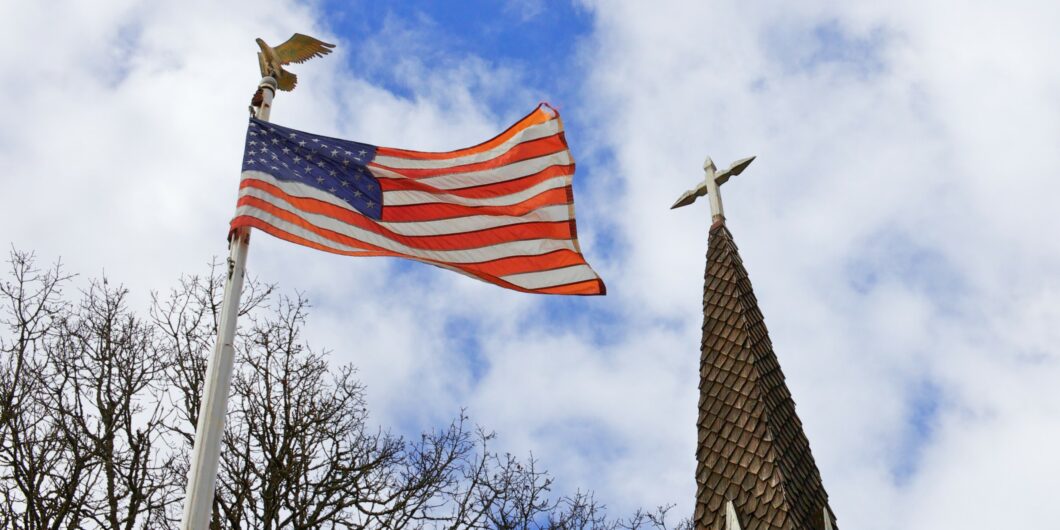The real goal of fitness should not be a beautiful body, but rather a well-lived life.
Finding Virtue in an Age of Anger
It is evident to anyone watching the news that our political climate is consumed with fractious, hyper-polarized, gamesmanship. To put it simply, our government resembles less and less the orderly debating society envisioned by the Constitution, and more and more some sort of blood sport—everybody has a team, they cannot fathom the other team having any redeeming qualities, and all the onlookers are howling for the slaughter to start.
Michael Wear’s recent work The Spirit of Our Politics aims to confront these dangerous trends in our political life head on. Wear—a former member of President Barack Obama’s White House staff and an evangelical activist—shows that the fear and hatred engendered by this political climate have been strongly linked to trends in American religion. With both conservatives and liberals claiming it is “the will of God” to eviscerate their enemies and enact their preferred policies, modern politics is beginning to take on a crusading tone.
Yet a plain text reading of most holy texts makes such cruel and uncompromising politics seem like a perversion of religious teaching rather than an embrace of it. Wear hopes both to prove this point but also to steer the American republic in a more noble direction—primarily through a renewal of American religion (rightly understood), but more broadly through the reacquisition of moral knowledge in the public square. For all his wisdom, though, Wear fundamentally misses some of the larger problems that stand in the way of renewing America’s civic virtue. In particular, he neglects the concentration of cultural, economic, and political power in large entities, from Big Government to Big Business. Such obstacles must be fully addressed if we are to have any chance of accomplishing Wear’s stated goals.
If Wear is correct that religion typically stands in opposition to political brutality, then why do so many Christians—left and right—determine their religion through their political beliefs rather than the other way around? He concludes that the deeper problem is the collapse of moral knowledge in Western society. Wear draws upon Dallas Willard’s definition of moral knowledge as an understanding of good and evil, the sort of “knowledge that might serve as a rational basis for moral decisions, for policy enactments, and for a rational critique of established patterns of response to moral issues.” Willard tries to make clear that the problem is not that we have no unified view of moral knowledge but that most people effectively do not believe in moral knowledge at all. Put simply, the problem of our age is not a lack of consensus about the truth but a complete inability to comprehend the existence of moral knowledge in the first place.
Wear explores several different reasons why moral knowledge has been lost in contemporary society, but they all boil down to a lack of faith in human beings to ascertain moral truths. Modern society tells us, without a whiff of shame, that we cannot fully know things that are not empirically true. Thus everything from religion to the purpose of government becomes a matter of half-arbitrary personal assertation. We are not all cognizant of how little we trust our own moral views, yet this lack of confidence in universal morality leads to distrust—both in the rightness of others’ moral viewpoints but also in our own. As a result, we turn to anger-stoking politics to steamroll all opposition to our wishes. Perversely, the fire of our violent political climate is lit by a complete lack of faith in our rational abilities.
Time and time again Wear makes clear that our politics is a product of who we are as a people. Reviving moral knowledge, and recommitting society to the Christian and classical concept of love, requires relinquishing some of the idols of modern society. We must discard our infatuation with empiricism, our romantic view of individuality, and our fear that the world will not move in the direction we like. These idols are obstacles to the soul formation that can genuinely transform and improve the American people.
Wear believes, though, that the process of removing those idols can never begin with government policy. He contends, rather, that the process of instilling love in the hearts of Americans must start with parents and pastors teaching it to their charges. The education of a society is a task in which each and everyone participates. Our daily behavior sets new standards for how those around us should act, especially the young. Wear issues a call to action: if we wish to improve our politics, this is not a task we can foist on our elected officials but one we must embrace ourselves.
Solving our political problems requires cold practicality, especially when it comes to confronting the issues of bigness and mass society.
In this diagnosis of the problems that confront contemporary America, Wear displays a keen eye for large political trends. The defining nature of the last seventy years of Western politics has been a gradual evaporation of human confidence in non-positivist reason. If something cannot be proven with hard data, we have increasingly little cultural support to argue its truth. The result has not just been a breakdown of moral consensus but the terrifying reemergence of physical and mobocratic force to achieve political aims. Without a firm faith in reason, civilization has turned to the Nietczhen will to power—a transition that has produced truly disastrous results.
Despite the strength of Wear’s analysis of moral knowledge, he downplays the important role community plays in addressing the important questions he raises. The frightening collapse of community in the preceding decades, after all, helped lead to our current crisis. To do their job well, parents, pastors, and teachers must be enmeshed in local communities that give them access to tightly linked people who live, pray, and learn together. The unintended effects of geographic mobility, social media, and rising income inequality, however, have led to those localities’ decline in recent years, even more than any purposeful effort on the part of nefarious actors ever could. As a result, the conduit to moral knowledge that has existed in communities is drying up.
Many of the problems that have led to the collapse of community stem from our contemporary obsession with big institutions. All of these institutions serve as a major obstacle to the formation of communities and thus of moral knowledge. Big Business—and the self-interested culture it encourages—wreaks havoc on localities and rip people from communities their families have called home for generations. Meanwhile, mass democracy and the Big Government it engenders prevent individuals from fully managing their own lives. Whether in education, religion, or healthcare, the government has an alarmingly outsized role in telling people how to behave.
If we really wish to revive moral knowledge, our society must confront the problem of large, overweening institutions. This does not mean that we must necessarily begin dismantling the structure of our current regime wholesale—at this point our society is so entangled in large entities that destroying them may be more disastrous than their present existence. But we must start finding ways for small, cohesive communities to stand up for themselves and work as equal partners with the large entities that dominate our world. This can be accomplished most easily by local institutions that both acknowledge and work with the wider world, while being given the institutional and cultural force necessary to withstand outside pressure that seeks to uproot them.
More importantly, though, community can reassert its authority by a reorganization of the economy and a loosening of over-regulation. For decades, the American economy has concentrated economic power in a handful of urban zones. One side effect of this is that talented workers are regularly forced to relocate leaving behind increasingly empty localities. If major corporations embrace work-from-home and other creative models of employment made possible by new technology, however, this could breathe new life into communities. Likewise, a loosening of government regulations could provide citizens with the breathing room necessary for local communities to have genuine autonomy.
At the end of The Spirit of Our Politics, Wear paints a moving picture of what the American republic could look like if we achieve this kind of social renewal. He asks us to imagine a world where every citizen puts the interest of the whole before themselves, where the human soul flourishes, and where civil society and politics live in perfect harmony because their respective roles are clearly understood. Though Wear’s ideal republic is based on the commandment of Jesus to “love our neighbors as we love ourselves,” this is a vision of America that transcends faith traditions. Surely all of us can see the beauty in a regime dedicated more to the commonweal and less to the anger and resentment of the teeming mob.
While no one can dispute the goodness of such hopes for the republic, Wear’s vision is a bit utopian. Solving our political problems requires more cold practicality, especially when it comes to confronting the issues of bigness and mass society. Though Wear is not unaware of such pragmatic considerations, they are conspicuously absent from most of his book and would do much to bolster his argument.
Despite Wear’s utopianism—tinged as it is with a sort of hopeful unreality—it may be a good thing to aspire for. Humanity is nothing without dreams, and Wear has given us a lovely one. But only so long as we do not get lost in the clouds on the way.



